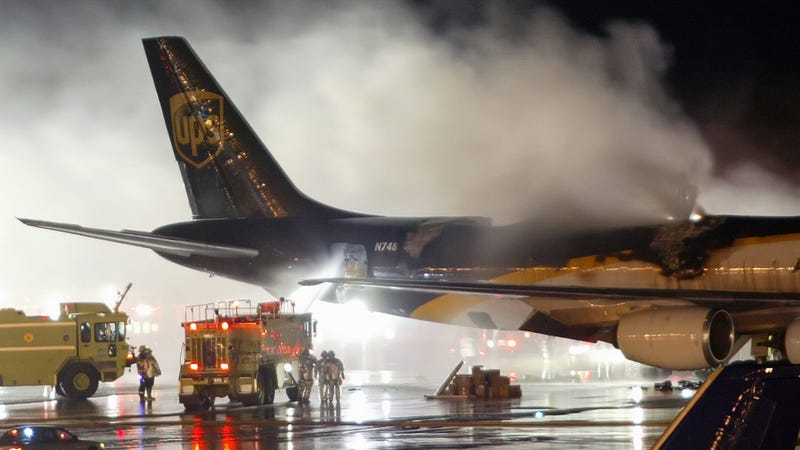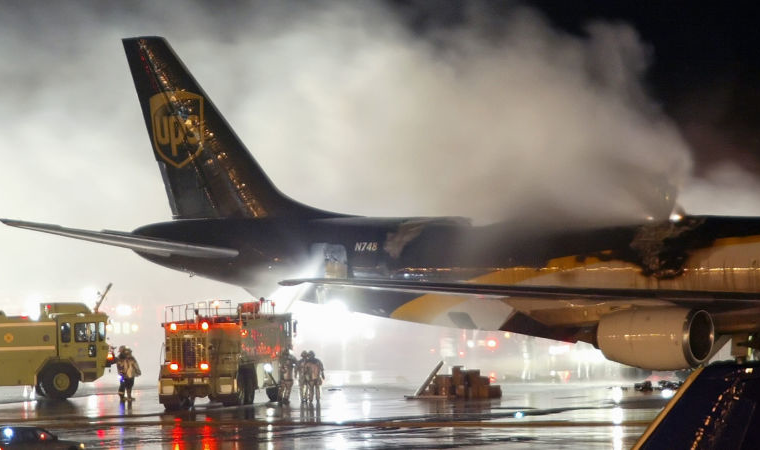
The Federal Aviation Administration and the Department of Transportation on Wednesday issued an interim rule banning the transportation of lithium ion cells and batteries as cargo on passenger craft, as well as setting a 30 percent charge limit on ones shipped as air cargo.
Lithium ion batteries have a non-negligible chance of exploding, which is naturally a reason to be wary about their presence on airplanes. Wednesday’s rule change was actually mandated by the United Nation’s International Civil Aviation Organization for all member countries in 2016, and as TechCrunch notes, the updated regulations are merely codifying that directive into U.S. aviation rules.
But outside of rare scenarios like the ban on potentially explosive Galaxy Note 7 phones, the new rule doesn’t affect passenger’s ability to carry lithium ion devices on flights—something that would create massive disruptions to air travel, since they are one of the most common battery types used in consumer electronics.

It’s easier for crew or passengers to deal with a flaming battery in the open space of the cabin than a tightly packed or inaccessible cargo hold, and some automated fire suppression measures are less effective on battery blazes. FAA guidance issued in 2018 noted that passengers checking spare lithium ion batteries in luggage is prohibited, and instead advised that they be removed and carried in the passenger cabin:
Smoke and fire incidents involving lithium batteries can be mitigated by the cabin crew and passengers inside the aircraft cabin.
If a carry-on bag is checked at the gate or planeside, spare lithium batteries, electronic cigarettes, and vaping devices must be removed from the baggage and kept with the passenger in the aircraft cabin. Even in carry-on baggage, these items should be protected from damage, accidental activation and short circuiting. The terminals on batteries not sealed in manufacturer packaging should be covered with tape and placed in separate bags to prevent short circuits.
As Engadget noted, most travelers won’t be impacted by rules on cargo shipments, but the change might impact wait times for people who place long-distance purchase orders for batteries as they will have to wait for cargo flights. It may also result in lithium ion devices sold online or at retail locations arriving uncharged, rather than prepped and ready to go.
[FAA via Engadget/TechCrunch]

